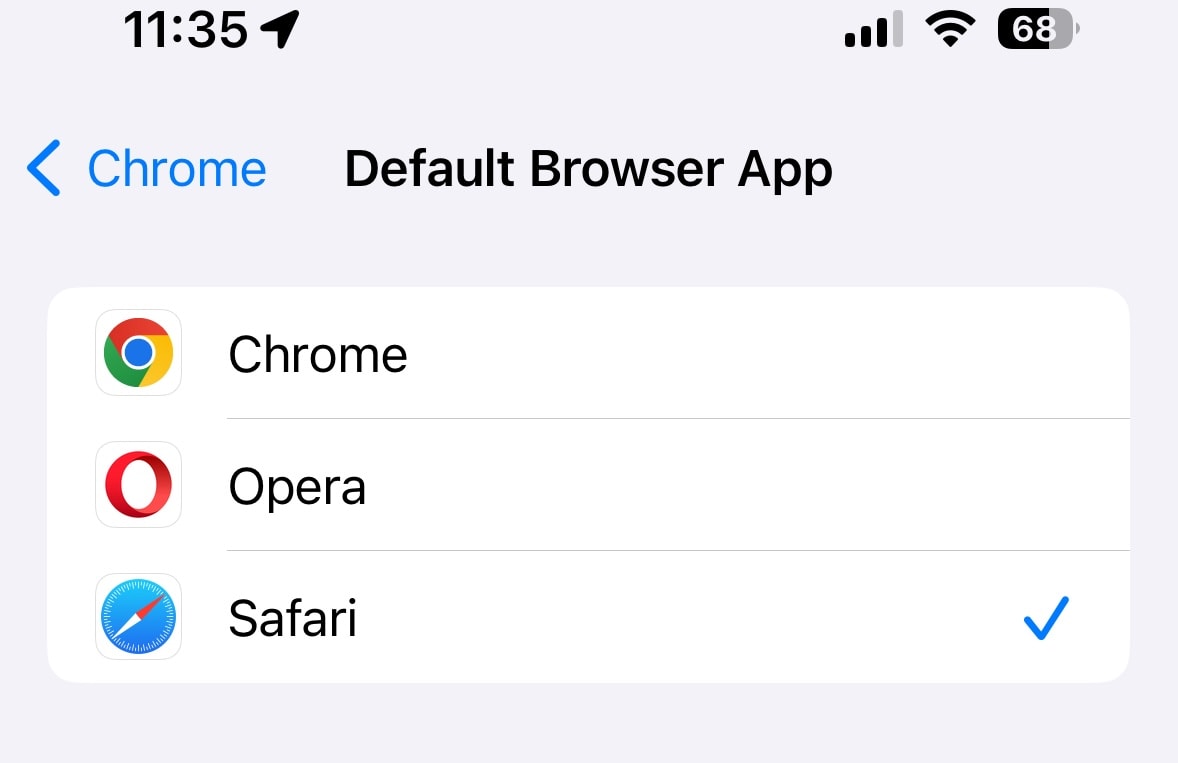Apple is further opening up iOS to alternative browsers and browser engines, as part of Cupertino’s plan to comply with the European Union’s Digital Markets Act.
In iOS 17.4 — launched Thursday as a beta — iPhone users in the EU will have a lot more choice over the default browser and browser engines.
The biggest change will be the ability to use alternative browser engines, like Google’s Blink renderer instead of Apple’s WebKit.
Alternate browsing engines coming to iOS
Apple on Thursday announced sweeping changes to iOS thanks to mandates from the European Union, which has found Apple’s operating system to be restrictive and anti-competitive. Among the changes, Apple will allow sideloaded apps and alternative app stores; alternative payment systems; streaming games and apps; and alternative browsers and browser engines. But these changes are available only to users in the European Union, and come with significant restrictions.
Right now, iOS users can switch default browsers, but not browser engines. Apple’s WebKit is the exclusive browser engine for both browsers and in-app browser windows.
The changes will make iOS work much more like the Mac, which allows alternatives to Apple’s defaults.
In the iOS 17.4 update, users will see a new “choice” screen upon opening Safari for the first time. This screen will allow users to pick their default browser from a list of options. The list will include the most-downloaded browsers on iOS, including Chrome, Firefox, Microsoft Edge, Opera and Brave.
Once set as the default, the browser will be used to open all links across the system, whether in email, messages or social media.
Changes don’t seem to be live yet
The changes don’t seem to have been implemented yet. Beta testers in Europe report that the browser picker isn’t yet active in the 17.4 beta.
Appel brings the FUD (Fear, Uncertainty and Doubt)
Apple warned that alternative browser engines may drain battery life or cause glitches.
“Apps that use alternative browser engines — other than Apple’s WebKit — may negatively affect the user experience, including impacts to system performance and battery life,” the company said in a statement.
Browsers will also be able to use alternative browser engines. Right now, all iOS browsers must use Apple’s own WebKit browser engine, including third-party browsers.
Chrome, for example, will be able to use the Blink rendering engine, for both the browser app and in-app browser windows.
The changes announced by Apple on Thursday amount to the biggest changes to iOS since the App Store launched in 2009. iPhone users in the EU will also be able to use alternative App marketplaces and alternative contactless apps for payments — and choose their own defaults. However, these changes are available only to iPhone and iPad users in the European Union.


